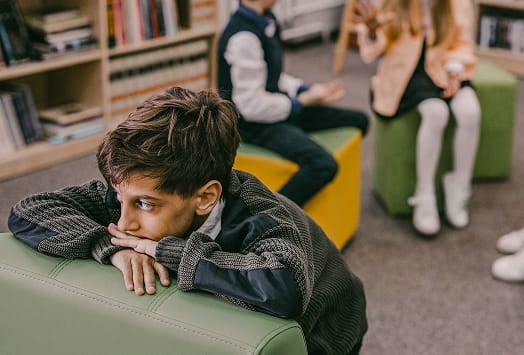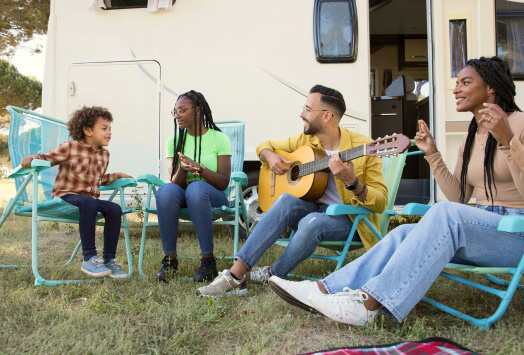Choosing the right daycare or preschool setting for your child is no easy feat and can feel like a daunting process for many parents. Many of these programs have beautiful marketing materials and social media accounts brimming with smiling children. How’s a parent to know whether a childcare program or preschool is really all that is promised? And what sets one apart from another? What are the most important considerations?
We asked our in-house child development expert, Emily Andrews, to give us some guidance on what parents should bear in mind as they consider daycares and preschools for their children.
How to choose the right daycare or preschool for your child
First steps
So, you have a baby, toddler, or preschool aged child and it’s time for you to find a high-quality daycare or preschool. You have inquired or applied to a handful, or perhaps as many as eight or nine daycares or preschools. Your selection is most likely based on location and the proximity to your home or workplace, word of mouth (reputation is important), and perhaps you looked at their websites and their beautiful language around child development and play really resonated with you.
You now have your acceptances in hand, you know which of those early childhood programs can offer your child a spot. Now what? How do you make the decision between one seemingly cozy and wonderful child program and another?
Here are some of the questions to ask as you determine if the school or care setting is the right fit for your child and family. You can ask the admissions person during a tour, the program director if you happen to meet them, or whoever welcomes you to view the school or meets with you for an informational meeting or interview. Some of these questions and their subsequent answers will be more relevant to you than others, but it’s worth asking anyway so that you know.

Questions to ask daycare and preschool administrators
- How many children will be in my child's class or group? With how many teachers?
- How much time do you spend outside each day? In what conditions do you stay in? Do children watch movies on rainy days?
- How do you handle separation?
- Can you tell me about your teachers? What level of training/degree of experience do they have working with children this age?
1. How many children will be in my child’s class or group? With how many teachers?
This is likely the most recognized indicator of quality when considering a preschool or daycare. An appropriate group size helps staff provide better supervision and care and creates more opportunities for adults to support social interactions.
Please note this is a different question than asking what the student to teacher ratio is for a given class or age group. The school must follow state mandated ratio laws based on the children’s ages and you can look that up yourself. The real question is do they stay below the maximum number permitted or do they max it out? I always like when a school chooses to keep their number one or two kids below the maximum number permitted where and when they can.
2. How much time do you spend outside each day? In what conditions do you stay in? Do children watch movies on rainy days?
Getting outside is an incredibly important part of a child’s day. It invites children to learn about science, creates opportunities for social learning and problem solving, and promotes overall health and better sleep. But care providers might not always feel this way. After all, getting a bunch of children outfitted in rain and snow gear can be a hassle. But, as a parent, you want a program that is committed to getting the kids out in the fresh air for some free play time every single day, and as often as possible.
With the increase in technology being used in early childhood settings, getting outside is even more important. If it’s raining or snowing, schools and care centers are now, more than ever, unnecessarily leaning into some of the tech infrastructure that was added to teacher’s toolboxes during COVID. The use of large screens in classrooms, YouTube videos during transitions, and “educational videos” in lieu of hands-on learning or outside time has increased drastically in the last few years. So, DO ask about outside time and the amount of screen time and choose a program that matches your comfort level.
3. How do you handle separation?
For many or most, going to daycare or preschool is a child’s first time away from their home without their trusted adult, and their adult’s first time leaving their child with someone new, somewhere new. Even a child (or parent) that doesn’t seem anxious about separating still needs reassurance, continuity, and an emotionally responsive person/place to feel safe enough to successfully transition from home to school and back again. And of course, an anxious child or parent needs that and more. For many families this can be a make-or-break factor as they attempt to settle in and adjust.
If you ask a school staff person this question during your visit and they answer, “It's case by case”, that really isn’t sufficient. Not because we don’t want them to think about our individual child’s needs. Of course we do. We know a response to such a thing shouldn’t be one-size-fits-all, but we want to know that this is a priority to the people that will be supporting our child. We want them to have language and thoughtfulness around how best to support a family as they separate from each other. Separating and saying goodbye is an incredibly important, foundational attachment experience that will lay the groundwork for future social-emotional development and should therefore be treated as such.
4. Can you tell me about your teachers? What level of training/degree of experience do they have working with children this age?
The last part of that sentence is as important as anything else. Often you’ll hear that the teachers have college or even Masters degrees in education. But the question stands, is it a degree in working with children this age? If you have a preschool being run and taught primarily by someone that used to be an elementary educator, you are likely going to find more reading and writing work than is age appropriate for a four or five year-old. Four and five year olds need to be playing. Knowing the level of training and experience of the teachers can help you decide if the program is right for your child.

Other questions that are indicators of quality or may be relevant:
- Do you have support teachers? Floater teachers? A consulting psychologist or social worker?
- Is your program inclusive?
- Do you offer early morning care? Additional after school care? Care during vacation/breaks?
- How involved are parents? Are parents ever invited into the classrooms?
- Was the program director ever a teacher? For how many years? What is their educational background?
- How do you handle discipline?
- With your child in mind, ask if they have anything that you know your child loves? For example: some text
- My child loves messy play. What sort of opportunities for sensory exploration do you offer?
- My child loves being read to, do teachers ever have the chance to read one-on-one or in small groups to kids?
- What sort of building safety measures are in place? What happens in an emergency?
- How often do the teachers communicate with the parents? Can we ever email or call them to check in on how it's going?
- How much information do you provide parents? Is there a daily report at the end of each day where you explain what my child ate, how they napped, what activities they participated in, etc?
Choosing the right daycare or preschool program is tough. There is a lot to consider but as is always the case, ask the good questions, and above all, follow your parental instincts. You got this!

















